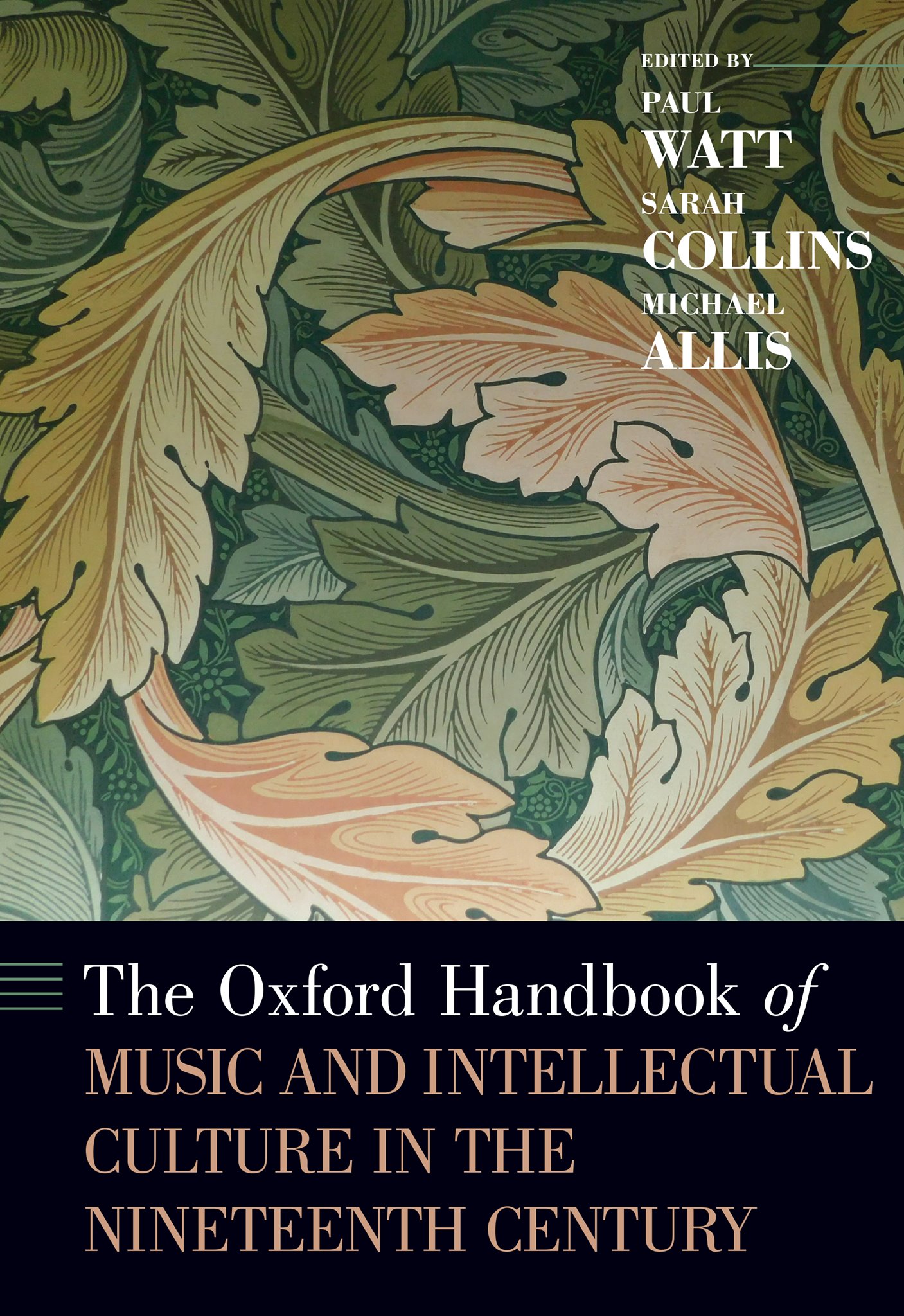 Dr Christopher Wiley has written a major book chapter on musical biography for a new essay collection published by Oxford University Press, The Oxford Handbook of Music and Intellectual Culture in the Nineteenth Century, edited by Paul Watt, Sarah Collins, and Michael Allis.
Dr Christopher Wiley has written a major book chapter on musical biography for a new essay collection published by Oxford University Press, The Oxford Handbook of Music and Intellectual Culture in the Nineteenth Century, edited by Paul Watt, Sarah Collins, and Michael Allis.
Dr Wiley’s 12,000-word chapter, entitled ‘Biography and Life-Writing’ (abstract available here), discusses the advent of musical biography, its proliferation in the long nineteenth century, and its legacy up to the present. It includes two case studies: a compilation of anecdotes, to explore how Victorian values were reflected in contemporaneous life-writing; and a collected biography, to investigate the role of women as characters within musical biographies.
Dr Wiley is an internationally acknowledged expert on musical biography, the subject of his doctoral dissertation, and has previously published widely on the subject.
Bibliographic citation
Wiley, Christopher. ‘Biography and Life-Writing’, in Paul Watt, Sarah Collins, and Michael Allis eds. The Oxford Handbook of Music and Intellectual Culture in the Nineteenth Century. Oxford: Oxford University Press, 2020, pp. 77–101. doi: 10.1093/oxfordhb/9780190616922.013.4.
Full text
The full text of Dr Wiley’s chapter is available here: https://www.academia.edu/35186914/Biography_and_Life_Writing_Oxford_Handbook_of_Music_and_Intellectual_Culture_in_the_Nineteenth_Century_
